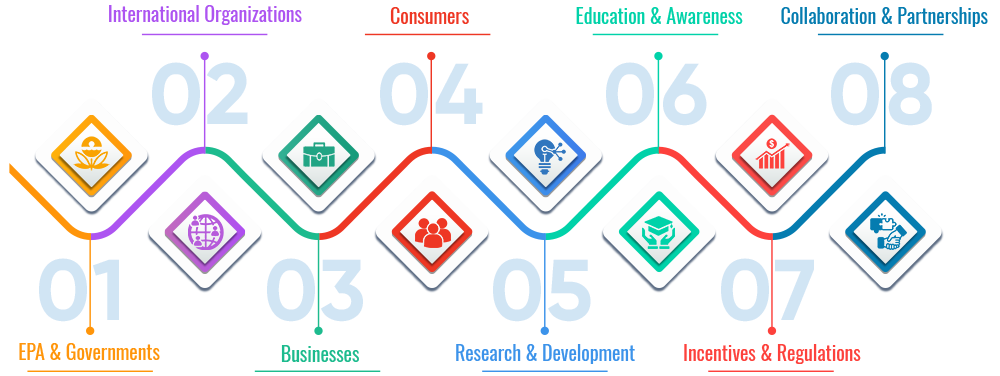Reducing greenhouse gas (GHG) emissions and improving fuel efficiency require collaboration among various stakeholders, including the Environmental Protection Agency (EPA), governments, international organizations, businesses, and consumers. An action plan that involves these entities working together should include:

1. EPA and Governments:
2. International Organizations:
3. Businesses:
4. Consumers:
5. Research and Development:
6. Education and Awareness:
7. Incentives and Regulations:
8. Collaboration and Partnerships:
By implementing this collaborative action plan, we can maximize our efforts to reduce GHG emissions, improve fuel efficiency, and combat climate change effectively. Each stakeholder plays a crucial role, and collective action is key to achieving substantial and lasting results. We intend to work closely with these entities to share SSE Global Group’s solutions for worldwide applications.

